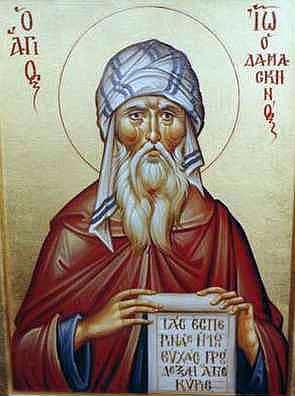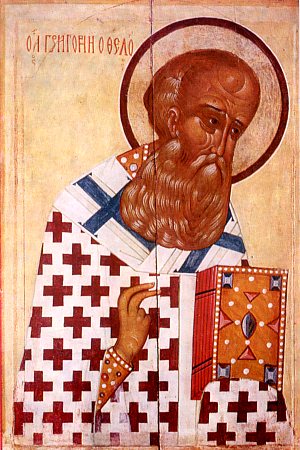I love Easter. I love it more when the Christian community, East and West, by delightful coincidence happens to be celebrating it on the same day, but on years like this, when they don't, I do my best to look at the silver lining: I get twice as many resurrected Christs. My intent had been to share another passage from John of Sinai today, but he has nothing very pleasant to say about Easter.
The gluttonous monk...counts the days to Easter, and for days in advance he gets the food ready. The slave of his belly ponders the menu with which to celebrate the feast. The servant of God, however, thinks of the graces that may enrich him.
Joy and consolation descend on the perfect when they reach the state of complete detachment. The warrior monk enjoys the heat of battle, but the slave of passion revels in the celebrations of Easter. In his heart, the glutton dreams only of food and provisions whereas all who have the gift of mourning think only of judgment and of punishment.
Well, I'm not a warrior monk, and I left my mourning on Great and Holy Saturday where it belongs. I suppose there is a reason why John of Sinai is standard Lenten reading for the Orthodox and not standard Easter reading. Though I admit the possibility that this is duplicitous of me, and I'm sure John of Sinai would accuse me of just that, but I'd like to think that I can think both of the physical feast and of the spiritual feast afforded by the resurrection. In fact, I rather like to believe that the two are related. With sacramental flavor, the feasts of holy days are intended to make tangible to our bodies and minds--more accustomed and attuned to the immediacy of physical stimuli than spiritual ones--the great joy which we have received from God. Today being the remembrance of that consummate joy of Christian existence, I intend to make that as holistic an experience as possible, letting my body partake of the joy of my heart, and vice versa. I can only hope that God consecrates that effort rather, and I don't run headlong into gluttony and dissipation.
On that note, happy Easter everyone (even those of you who thought Easter was more than a month ago).


